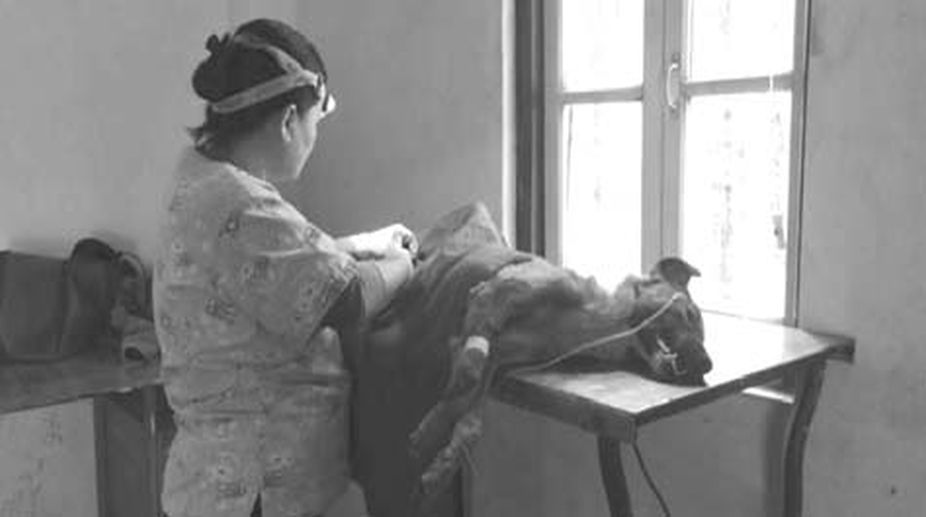Nana Patekar critiques Ranbir Kapoor’s ‘Animal’; ‘Only Anil Kapoor’s performance was restrained’
Nana Patekar shares his review of Ranbir Kapoor's 'Animal.' Notably, he is all-praises for Anil Kapoor, his co-star from ‘Welcome.’

Sikkim Anti-Rabies and Animal Health
The Sikkim Anti-Rabies and Animal Health (SARAH), an animal welfare and public health initiative of the state government, conducted a camp on Animal Birth Control and Anti Rabies (ABC & AR) in North Sikkim from 8 to 19 February.
A total of 268 stray dogs from the surrounding areas of Mangan and nearby districts were caught and sterilized, while 303 stray dogs were vaccinated against rabies and were also de-wormed in the campaign, it is learnt.
“The government of Sikkim has recognized the importance of animal welfare and has thus formed the SARAH division to reduce stray dog population by humane and sustainable means. This is a first government-sanctioned initiative in India, which aims at implementing animal birth control and anti-rabies programmes,” sources said.
Advertisement
The state government formed this separate division within the Department of Animal Husbandry, Livestock Fisheries and Veterinary Services on 22 March 2009 so that such animal welfare work can be permanently implemented in the state.
Prior to its establishment, authorities of the programme confronted with an ever increasing stray canine population and rampant human and animal rabies deaths that prompted mass shooting of dogs. However, despite such horrible and cruel practices, the rabies and the stray dog population never came under control.
“After dedicated efforts of the division, there has been a significant decline in the number of both human and animal rabies in the state,” officials concerned said. Meanwhile, the Department of Animal Health and Veterinary Services of the government, in conjunction with the Sikkim Society for Prevention of Cruelty towards Animals and a number of International NGOs like the Brigitte Bardot Foundation and Vets Beyond Borders, started implementing the statewide Animal Birth Control and Anti-Rabies programme.
“Since then, the programme has become a huge success and this in turn has made positive impact on public health, environment, wildlife and tourism in the state,” officials said. “Dogs have not only remained man’s best friend, but they have effectively prevented wildlife intruders like bears, monkeys and jackals which has prevented disasters.
Dogs very often effectively control rats and other vermin, thus preventing transmission of a potential disease. Irresponsible pet ownership and abandoning of sick and unmanageable dogs on the streets, monasteries, temples and careless breeding of animals should be discouraged. This not only goes beyond the definition of “being humane” but also in turn impacts community health, environment and tourism,” a member of SARAH said.
Advertisement